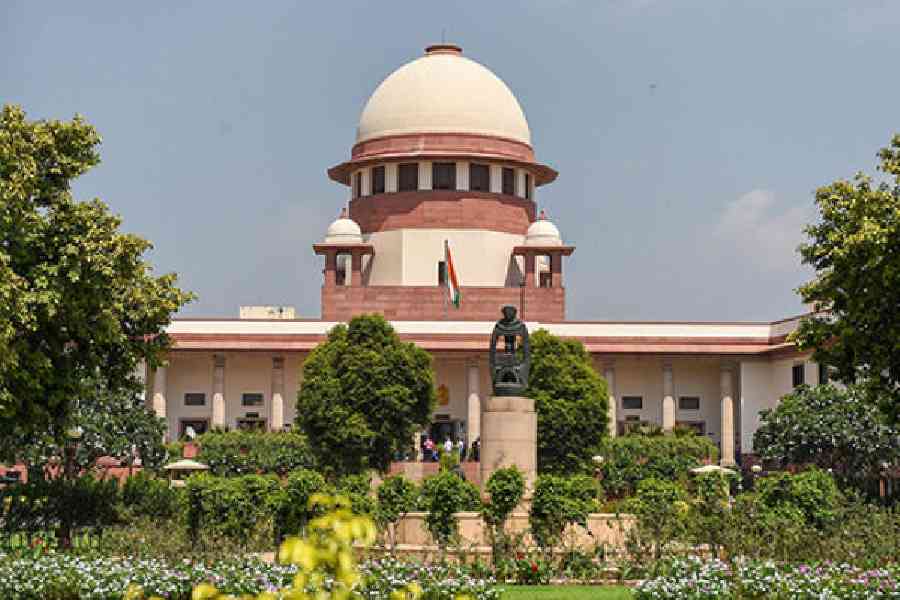The Supreme Court on Friday asked the Centre and the states to prepare a joint strategy with the help of the Law Commission for the adoption of “blockchain technology” for registration of properties to curb fraud.
A bench of Justices P.S. Narasimha and Joymalya Bagchi noted that the existing laws — the Transfer of Property Act, 1882; Stamp Act, 1899; Registration Act, 1908; and the Evidence Act, 1872 — were colonial-era constructs and stressed the need for a “conclusive titling system guaranteed by the State”, which would simplify property transactions and reduce litigation.
“Property disputes account for an estimated 66 per cent of all civil cases. More than a century has passed by, and we must dare to think and look for alternatives,” the bench said.
Blockchain technology creates a secure, transparent and immutable digital ledger for all property transactions, which makes it tamper-proof and reduces fraud. It also provides a single, verifiable source of truth for ownership history, making it easier and faster for buyers to verify a property’s title and for the system to process transactions through smart contracts.
The top court said the legal framework for the transaction of immovable properties suffered from several systemic deficiencies that undermined reliability, transparency and efficiency.
“There are problems relating to i) fake and fraudulent property documents, ii) rights and liabilities, iii) land encroachments, iv) delay in verification processes, and v) role of intermediaries etc,” Justice Narasimha, who authored the judgment, said.
“In addition to these, there are also administrative problems at the office of the sub-registrar of registration, involving the statutory and regulatory requirements of the presence of the buyer and seller along with two witnesses for document verification, legal authentication collection, and official recording, all of which require coordination, synchronisation, and our experience has shown us that this process is cumbersome and time consuming. Moreover, land being a state subject under the Constitution, these procedures vary from state to state and are highly fragmented,” he added.
The apex court said the blockchain technology offered “an alternative paradigm by encoding land titles, ownership histories, encumbrances, and by recording transfers on a distributed ledger in an immutable and time-stamped form”. “This property of immutability could enhance the integrity of title records and strengthen public trust in the ownership framework,” Justice Narasimha observed.
The bench passed the judgment while quashing as unconstitutional certain provisions of the Bihar Registration Rules, 2008, empowering authorities to refuse registration of documents if proof of mutation of the property in favour of the vendor was not produced.










